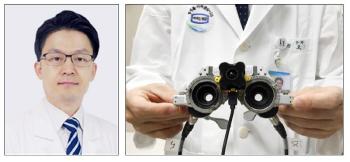No. 2 Male Cancer Prostate Cancer Triples the likelihood of occurrence if the sibling is a patient
May 19, 2025
|
The prostate is a reproductive organ that surrounds the urethra under the bladder and is only present in men. The top is round and narrows as it goes down, and the end is blunt. It produces semen and helps sperm exercise. Prostate cancer refers to the development of cancer in this prostate, and prostate cancer usually spreads to the bone, so if the metastasis is severe, you may accidentally find prostate cancer while examining it due to bone pain.
In fact, prostate cancer has become a 'ordinary cancer' that any man can get.
Prostate cancer is one of the fastest growing cancers in Korea. As of 2022, the number of prostate cancer cases in Korea is 27,754, ranking second among all male cancers. This is a 15-fold increase from 1,372 people in 2000, more than 20 years ago, and the number of outbreaks after the 60s is also on the rise as the aging population progresses.
Prostate cancer is a malignant tumor that starts from the periphery of the prostate, and as the tumor grows, it can spread to the inside of the prostate. Like other cancers, prostate cancer can also spread to other organs of the body, and early prostate cancer does not cause any symptoms, but it causes other problems, such as compressing the urethra as the cancer progresses.
Prostate cancer tends not to be taken seriously because its progression is slow and its 5-year survival rate is very high at 96.4% as of 2022. However, early diagnosis of prostate cancer is particularly important for Koreans. In Korea, the incidence of metastatic prostate cancer is still much higher than in the West, and cancer with high malignancy is diagnosed much more among the same cancers. Prostate cancer is often accidentally detected through examination because there are no symptoms in the early stages. Since the risk of prostate cancer is judged through PSA tests through blood tests, rectal resin tests, and rigid bowel or cervical prostate biopsy, it is recommended to undergo periodic examinations once a year from the age of 50, and if you have a family history of prostate cancer from the age of 40.
High-risk prostate cancer patients have a family history.
It is known to have genetic predisposition in more than 10% of prostate cancer patients. A family history increases the likelihood of prostate cancer, increasing about twice as much if the father is a prostate cancer patient and about three times as much if the brother is a patient. Inflammation also has an effect. Many cancers, including colon cancer, esophageal cancer, stomach cancer, and liver cancer, are known to be related to inflammation. Most of them grow under the influence of male hormones, but in rare cases, prostate cancer, which is completely unrelated to male hormones, is called neuroendocrine prostate cancer. It is very rare with 1% of all prostate cancers, but it grows faster and shows a tendency to be aggressive than general prostate cancer.
When prostate cancer is diagnosed through a biopsy, the progression is determined through MRI (magnetic resonance imaging) tests and bone scan tests. Determine the most appropriate treatment based on various test findings. There are various treatment methods such as surgical treatment, radiation treatment, hormone treatment, anticancer drug treatment, and topical treatment, but it is known that the prognosis of surgical treatment for the purpose of cure is the best for prostate cancer treatment.
Prostate cancer, like any other disease, can be overcome with constant interest. To prevent prostate cancer, diet control is necessary first. It is recommended to reduce meat intake and eat a low-fat diet. It is recommended to eat enough fruits and vegetables, and there are reports that the lycopene component of tomatoes has a preventive effect. It is also important to maintain proper weight through regular exercise.
Kang Sung-gu, a professor of urology at Korea University's Anam Hospital, advised, "Prostate cancer is not as mild as it is known, and as there are no initial symptoms, it is important to exercise regularly and keep a healthy diet for prostate health. Even if there are no symptoms, it is recommended to undergo periodic examinations once a year from the age of 50, and if you have a family history of prostate cancer from the age of 40."
|
This article was translated by Naver AI translator.















